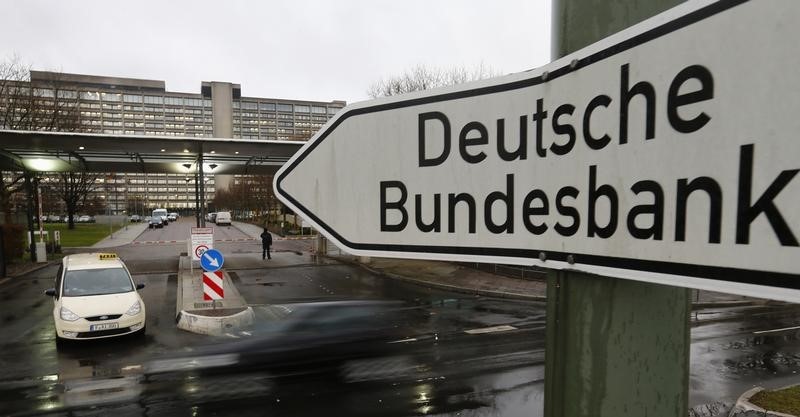FRANKFURT (Reuters) - Growth in Germany, Europe's biggest economy, will slow in the coming years, the Bundesbank said on Friday, cutting its forecasts in a biannual review after a string of disappointing data in recent months.
For years the euro zone's powerhouse, Germany struggled unexpectedly in the second half 2018, suggesting that Europe's growth cycle is now past its peak and its rate of expansion will slow back toward what is considered its natural potential.
"It is probable that aggregate capacity utilization, which is already at a high level, will increase only slightly further in the coming years," the Bundesbank said in a statement.
"Gross domestic product, meanwhile, is projected to rise at only a slightly faster pace than potential output, the growth rate of which will also decline," it added.
The German central bank now sees growth at 1.5 percent this year, below its previous projection for 2 percent, then picking back up to 1.6 percent over the following two years.
The cut follows the European Central Bank's move on Thursday to reduce its own growth projections for the euro area.
The Bundesbank sees headline inflation at 1.4 percent next year against a previous projection for 1.7 percent and well below the ECB's own target of "close to but below 2 percent".
"For economic growth and, to a lesser extent, for the rate of inflation as well, it is the downside risks that predominate as things stand today," the central bank said.
